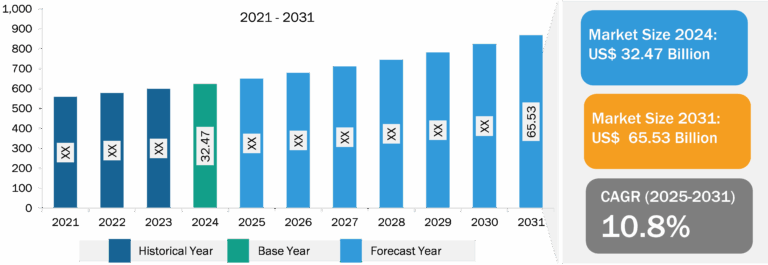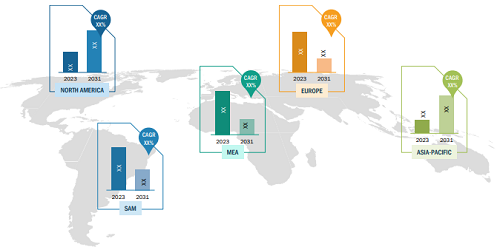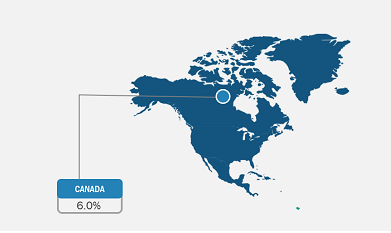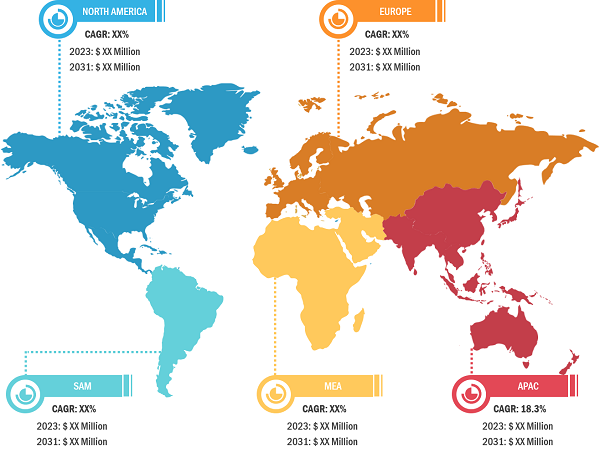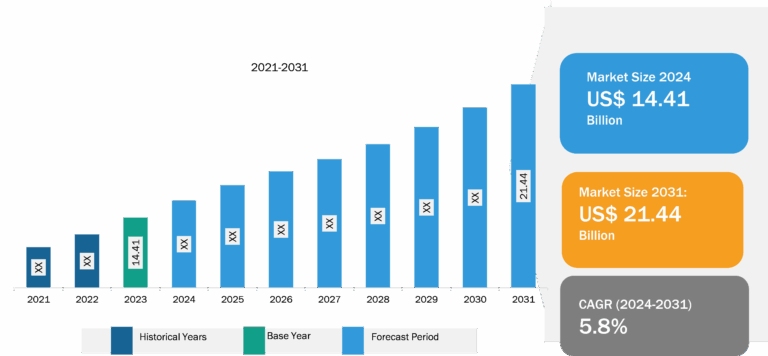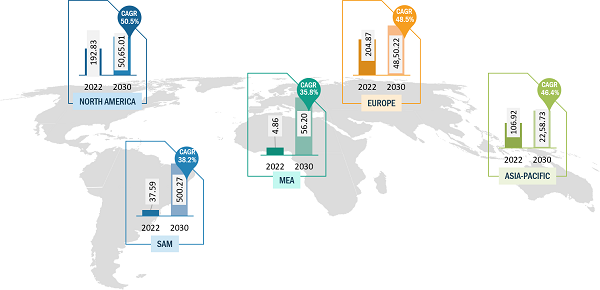
Advanced Air Mobility Market
The aviation industry is one of the fastest-growing sources of greenhouse gas emissions, driving global climate change. On January 11, 2021, the Environmental Protection Agency (EPA) issued a greenhouse gas (GHG) emissions standard for aircraft operating worldwide to control their carbon emissions. In addition, in November 2021, the EPA filed a litigation that formulated the commercial aircraft greenhouse gas (GHG) emission standards, which the EPA promoted in early 2021. The development of electric propulsion-based eVTOL aircraft helps mitigate the environmental impact in terms of noise and pollutant emissions. Thus, government regulations and policies for reducing emissions drive the demand for electric propulsion-based eVTOL aircraft.
Initiatives from key players and startups are increasing across the world. For instance, in May 2022, Volocopter, a German startup, announced that it is partnering with Jetex, an aircraft ground handling company, to deploy and operate permanent vertiport infrastructure for passenger services. The startup will launch operations in 2024. As battery technology has improved over the years, eVTOL is becoming sustainable. eVTOL aircraft can fly for longer ranges and at higher speeds. Electric propulsion-based eVTOL can move into intra-city and inter-city aviation. The investments from key players are also growing. For instance, in January 2022, the ePlane Company, an eVTOL aircraft startup company, raised US$ 5 million in a Pre-Series A funding round led by Speciale Invest and Micelio. The investment was made to make unmanned air taxis. In addition, in January 2022, Jetson AB, a Swedish eVTOL company, completed the sale of the entire production of its eVTOL aircraft in 2022 and has an order of 100 units with delivery from 2023, along with over 3,000 pre-orders for further deliveries. Moreover, the increasing developments in electric propulsion-based UAVs are also expected to boost the eVTOL aircraft during the forecast period. Also, the vendors across this market are initially focusing on the development of fully electric propulsion-based eVTOL aircraft, which is acting as one of the major drivers of the advanced air mobility market.

Advanced Air Mobility Market Analysis: Propulsion Type Overview
Based on propulsion type, the global advanced air mobility market is classified into fully electric and hybrid. Growing fuel prices and rising environmental concerns are boosting the application of fully electric advanced aircraft in the advanced air mobility market. In 2022, fully electric segment dominated the advanced air mobility market, and it is also expected to retain its dominance during the forecast period as well. One of the major factors driving the growth of advanced air mobility market size is the demand for fully electric systems to reduce the environmental emissions from the flying machines or the aviation sector worldwide. Moreover, the deployment of large number of electric systems, introduction of electric aircraft, eVTOL aircraft models, several types of fundings for the development of advanced air mobility infrastructure are some of the other factors leading to increasing number of collaborations and partnerships among the eVTOL and sUAS system manufacturers which is further driving the advanced air mobility market growth across the world.
Advanced Air Mobility Market: Competitive Landscape and Key Developments
Airbus, Bell Textron, EVE Mobility, Boeing, Ehang, Lilium GmbH, Volocopter, Joby Aviation, Archer Aviation, and Heart Aerospace are among the key advanced air mobility market players profiled during this study. In addition, several other important advanced air mobility market players have been studied and analyzed during the study to get a holistic view of the advanced air mobility market and its ecosystem.
- In 2022, Thales partnered with Eve for eVTOL development. Thales announced to support the development of its electric vertical take-off and landing aircraft in Brazil. The strategic partnership involves a series of joint studies over a twelve-month period, which started in January 2022, on the technical, economical, and adaptable feasibility of a 100% electrically powered aircraft.
- In 2023, Elbit Systems UK awarded a contract to provide Magni-X micro-Uncrewed Aerial Systems (micro-UAS) to the UK Ministry of Defence (MOD). The contract has been awarded by Defence Equipment & Support’s Future Capability Group as part of the British Army’s Human Machine Teaming framework, and the proven micro-UAS will be delivered to specialist army units for service by mid-2023.

